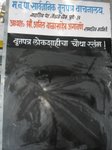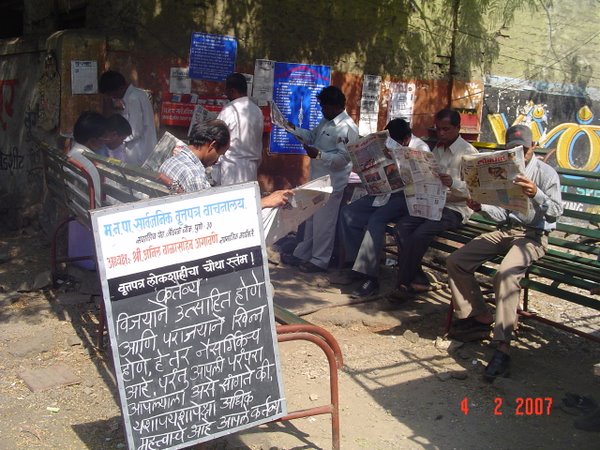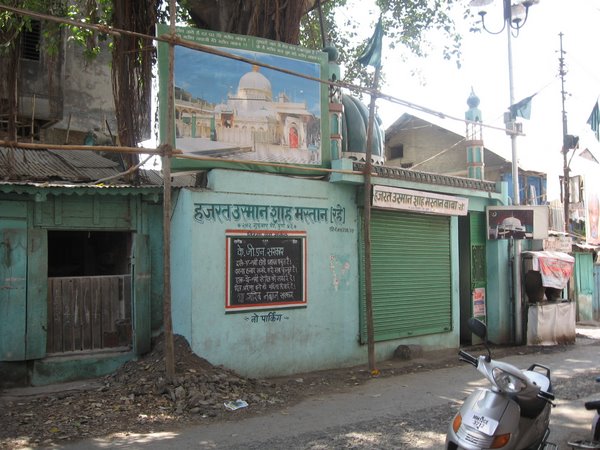

Shahid started writing the vartaphalak on his own two years ago. He is 18 and after having studied till 8th standard, started working in his brother’s air conditioner repair worship. Interestingly, he is the Khaadim (priest) designated to look after the durgah, which he considers to be a huge honour. He had asked for it himself. Even all the Urus announcements were made by his name. When I asked him why he asked for the priesthood of the durgah, he replied that he had seen the durgah closely, he knew how to take care of it. He said that one really had to work hard to fulfill the commitments of a khaadim. Khud ke shareer ko kaatna padta hain… (One has to cut oneself for this). But he said that only after getting the experience himself, his faith got consolidated - Humne aajmaaya hua hain. I thought it was remarkable that an 18 year old had asked for the khaadimgiri of the durgah and also the fact that the community had allowed such a young boy to take up this responsibility. Mohsin had also mentioned in the passing that he traced his lineage from the pir’s family. Maybe that had a role to play in his getting the khaadimgiri.
According to him, buzurgon ke saath baithte hain toh achhi baate samajh mein aati hain – one gets to learn good things when one spends time with knowledgeable and senior people in the community. He started writing the vartaphalak because he felt that whatever knowledge he was able to obtain from them should also be passed on to other people. He gets the hadees (sayings by Prophet Mohammed) from the community’s maulana, who explains to him the meaning and then he writes them on the vartaphalak.
According to him, buzurgon ke saath baithte hain toh achhi baate samajh mein aati hain – one gets to learn good things when one spends time with knowledgeable and senior people in the community. He started writing the vartaphalak because he felt that whatever knowledge he was able to obtain from them should also be passed on to other people. He gets the hadees (sayings by Prophet Mohammed) from the community’s maulana, who explains to him the meaning and then he writes them on the vartaphalak.





No comments:
Post a Comment